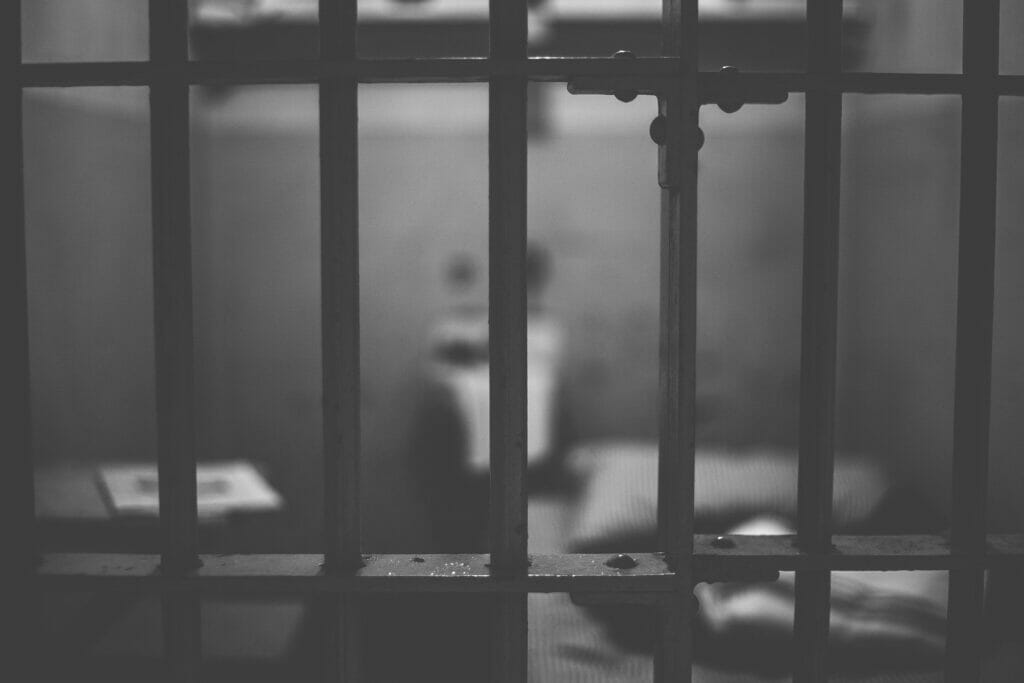Criminal Law

Criminal law consists of a system of laws directly pertaining to individuals that have committed a crime. Different from a civil case, where two individuals dispute their rights, criminal law is decided overall by the government, they make the final ruling over whether someone is guilty or not. Crimes will either be considered a misdemeanor or felony. Misdemeanors are a lower level, not as serious crime with the possibility of maximum jail time being 364 days. Felonies are considered much more serious crime and jail time will extend beyond a year.
Personal Crimes
Personal crimes are distinguished as any crime an individual commits affecting another’s mental or physical state. Personal crimes are represented by homicide as well as other violent crimes.
Personal Crimes may include:
- Assault and Battery: Both exist in the context of tort crimes as well as criminal crimes. Assault VS Battery, there are differences between assault and battery. Assault is a threat leading towards battery. Battery is the act of actually being physically harmed, assault and battery charges are usually accompanied by one another.
- Arson: Refers to the act of one intentionally and maliciously burning another’s property. Arson is defined by degrees, first & second degree occur when the arson committed was undoubtedly intentional, third degree occurs from recklessness.
- Child Abuse: Physical or mental/emotional harm, endangerment, abandonment, neglect or sexual abuse are all forms of child abuse. In most cases, intentionality is needed for a crime to be considered. Penalties for child abuse differ from case to case, age of the child is a factor. Child protective service agencies in all fifty states seek out and track cases of abuse and neglect.
- Domestic Violence: Takes place when one individual or family member acts out violently or abusive to another, child abuse is an example. Domestic violence can occur between any type of couple whether married or unmarried, living together or separately. Cases usually involve a cycle of abuse. Domestic violence usually falls into four categories, physical abuse, sexual abuse, emotional abuse, and economical abuse. Domestic battery or spousal battery also falls under domestic violence. Domestic violence charges vary depending on the seriousness of the victims injuries, if any orders were broken or if children were present during said crime.
- DUI: Driving under the influence, can be either alcohol or drug related. DUI’s occur when an individual drives while being impaired by a substance. In Illinois if your blood alcohol content (BAC) is .08 or above you are considered under the influence. DUI’s are a thing to avoid entirely, but what happens after your first DUI? Many negative consequences accompany a DUI. Jail time is a possibility even after your first offense DUI, guilty individuals may be subjected to a maximum 364 days in jail and a minimum of six months in jail if a minor was present. DUI fines in Illinois start at a maximum of $2,500, a minimum fine of $500 is applied if the defendant’s BAC consists of .16 (double the legal limit) or more. If a minor was involved (Person 16 or younger) a minimum fine of $1000 dollars is issued. Punishment for a DUI may also include community service, if BAC exceeds .16, 100 hours of community service is required. If a minor was involved, the defendant will be responsible for 25 hours of community service, which specifically benefits a children program. Your license will be suspended for a year, defendants may apply to a restricted driving permit (RPD) this will allow the defendant to drive minimally to places like work, school or doctor appointments for example. For this process to occur the defendant must show that a RPD is needed and prove they are not a danger to society. Lastly, any driver with a DUI offense will go through an evaluation to determine if there is a substance abuse issue. If an abuse issue is indicated, the individual will have to seek recommended treatment in which they are ultimately responsible to cover all costs.
- Involuntary Manslaughter: Separate from voluntary manslaughter, involuntary manslaughter occurs when an individual acts recklessly, whether lawfully or unlawfully, and those reckless acts result in another dying. Involuntary manslaughter is considered under two separate classifications, involuntary manslaughter and aggravated involuntary manslaughter. Involuntary manslaughter is known as a class 3 felony, resulting in 2-5 years in prison with a maximum fine of $25,000 dollars. Aggravated involuntary manslaughter is a more severe crime, considered a class 2 felony. Factors like where the offence was committed i.e. a school or construction zone or if more than one person killed, it’ll be considered aggravated involuntary manslaughter. Penalties may include a prison sentence of 3 to 7 years, fines up to $25,000, periodic imprisonment of up to 30 months, or probation.
- Homicide: Involves violent crimes such as first-degree and second degree murder, as well as manslaughter. First-degree murder is considered the the most serious of all homicide crimes in the state of Illinois. Illinois first-degree murder laws are no joke and are taken very seriously. To prove first-degree murder, it must be provable that the defendant willingly killed another individual, premeditation is required. A first-degree murder sentence depends on factors such as who was killed, where, how and why. Illinois is no longer a death penalty state, others states still are, the maximum penalty in Illinois is life in prison. Overall prison time varies from case to case. Second-degree murder unlike first-degree, does not include premediation. The charges for second-degree murder are lesser than that of a first-degree murder charge, though it still carries severe consequences. In this instance the crime was committed in the spur of the moment, an example could be a man catching his wife cheating on him, and he kills the other man involved. There is no overall plan to kill someone, rather the defendant at the time found justice in there actions. The penalty in Illinois stems from 4 to 20 years in prison, depending on behavior, probation may be offered depending on the severity of the case and crime involved. Another crime that falls under homicide is involuntary manslaughter. These types of crimes involve an individual killing another but its an accident. The biggest example would be a drunk driver killing an innocent bystander, due to the drunk drivers negligence or recklessness, another individual loses there life. The maximum jail sentence for involuntary manslaughter is five years, along with a $25,000 dollar fine. Involuntary manslaughter is considered a class 3 felony.
- Kidnapping: Kidnapping is broken down into two separate categories, kidnapping and aggravated kidnapping. Kidnapping refers to the act by an individual who secretly corrals an unwilling party, usually through force or the threat of force, and moves that person around from place to place. Kidnapping is considered a class 2 felony in Illinois. Aggravated kidnapping is the same as regular kidnapping but includes more heinous aspects. If the kidnapper posts ransom, possesses a weapon or caused bodily harm, its considered aggravated kidnapping. Aggravated kidnapping also occurs when the victim is either 13 years or younger or mentally impaired or when the kidnapper is concealing their identity to commit the crime. Aggravated kidnapping comes with a harsher charge when compared to kidnapping, its considered a X class felony.
- Sexual Assault: Sexual assault or rape is when an individual harrasses and unwilling party in a sexual manor, penetration to an individual whom is not giving consent. Sexual assault crimes are considered very serious and are accompanied by harsh penalties. If minors are involved this is known as statutory rape, as an underage individuals cannot give legal consent. We see sexual assault crimes frequently take place in places of privacy. Sexual assault charges are not the easiest to prove as there are usually two completely different stories, which contradict each other. A few factors have helped with this issue over the years such as forensic science and sex crime units. The sentences involved with sexual assault go as follows. For a first time offence, the crime is considered a class 1 felony, resulting in 4 to 15 years in prison. A second time offender will not get a class 1 felony, rathe a class X felony. A second time offender could spend anywhere from 30 to 60 years in prison. Finally, if the crime is considered aggravated sexual assault, jail time is 6 to 30 years and the possibility of life. Use of a weapon, directing threats to one’s life, the involvement of a minor under the age of 8 years old or mentally impaired person are all grounds for aggravated sexual assault and is considered a class X felony.
- Traffic Violations: One of the most common types of laws broken consistently are in the form of traffic violations. Whether it be speeding, blowing a red light, or not wearing a seatbelt, traffic violations are abundant and depending on the specifics of the violation can be very serious. Driving with a suspended license or without registration is illegal and a ticket will most likely be issued. Another form of a traffic violation is driving under the influence, penalties are much more severe for this type of traffic violation when compared to committing an illegal U-turn for example. Other types of traffic violations include, driving without insurance, hit and runs, illegal modifications to vehicles, and reckless driving.
- Voluntary Manslaughter: Falls under homicide in Illinois, unlike murder, manslaughter occurs when one takes anothers life but it was not intentional. Voluntary manslaughter is unique in Illinois, as it only pertains to unborn children. Voluntary manslaughter takes place when either the offender, seek to cause harm or kill the victim, instead killing the child, a man hitting his pregnant woman and the child dying from the damage done is an example. The other time voluntary manslaughter may occur is when the offender knowingly kills the unborn child, due to circumstances they see just. Penalties for voluntary manslaughter include periodic jail time, usually consisting of three to four years, probation, a fine of up to $25,000, or 4-15 years in prison. Voluntary manslaughter is consider a class 1 felony and is a separate from involuntary manslaughter.
Property Crimes
Property Crimes are crimes committed when damages are done to an individuals belongings, such as homes, cars or other personal property.
Property Crimes may include:
- Auto Theft:
- Burglary:
- Larceny:
- Robbery:
- Shoplifting:
- Theft Crimes:
Inchoate Crimes
Inchoate crimes consist of crimes that were attempted but not completed, usually being done to help another criminal or crime.
Inchoate Crimes may include:
- Attempt:
- Conspiracy:






